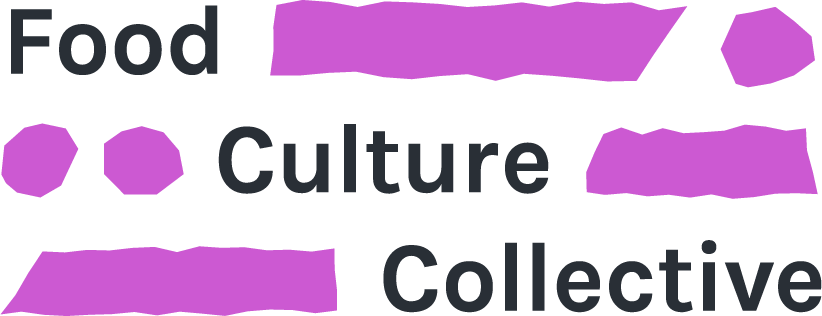How does multigenerational story ground us in our responsibility to each other?
Finding Clarity in the Fog of Election Season
BY PUI-LING LEW
Yesterday, I found myself fixated on the sky in the marshlands of Heron Bay, in San Leandro, CA—looking for comfort and answers to the anxiety and uncertainty of this election season, a time of so much change.
Taking in the wide, unobstructed views of the horizon, the sky, and the bay, I meandered along a trail that cut between the marshes. I saw patches of saltgrass, pickleweed, cordgrass, and gum plants growing in the mud, sand, and water. I heard birds whose songs I yearned to learn as the sun played peek-a-boo, and the wind danced with the grasses. I found exposed concrete and wood, and rusted metal—remnants of structures from when this landscape was developed as a port in 1850 for shipping farm produce to San Francisco, and later, as a place for manufacturing explosives.
This larger story has the capacity to heal and move us towards thriving by weaving the past, present, and future together.
Today, these mashlands are slowly being restored. My heart aches, feeling the weight of how this land was stolen from the Ohlone peoples, its original stewards. I hold reverence for the steadfast return of salt marshes, the deep knowing of the cycles of life and death, and the allyship of the people supporting its restoration. Gazing at the horizon, I find comfort in its constancy amidst change.
Video by Pui-ling Lew. Image ID: Sunset over the water at Heron Bay with birds flying and landing in the middle ground
In Heron Bay, time blurs. It’s a landscape that contains multitudes of stories—marshlands teeming with life, colonial settlements, the rise and fall of extractive and toxic industries, and a return to people tending to this ecosystem and to each other. These stories are sacred because they are part of the larger story of the life of this place and everything in it.
Even now, with all that is crumbling around us, this larger story has the capacity to heal and move us towards thriving by weaving the past, present, and future together. Attuning to this long-arc story—how life has thrived and can thrive again—helps me live into the story of today. It’s a story that contains actions that I’m taking with my community, relationships, lands, foods, and cultural ways. Our fights, our problems, are multigenerational, so our solutions must be as well.
“We must remember how this election sets us up for the next election, beyond this one.”
HANA’ MAAIAH
Soul Fire Farm
So, yes—this election is happening at a time shaped by colonization, imperialism, and fascism—but this moment is part of a story that is bigger than these destructive forces. We’re part of a story that, like the ever-evolving salt marshes of Heron Bay, is about the cycles of life itself in the places we call home. When I’m filling out my ballot, I’ll be thinking about how I can help this collective story be one of thriving, and not just surviving for the land and our peoples.
I’m reminded of the words of Indigenous ethnobotanist, Enrique Salmón, from our Reweaving Belonging roundtable conversation. He reflects on centering our responsibilities to everything and everyone around us in our decision-making, rather than our individual rights. When we embrace that ethos, it allows us to truly focus on the impacts our choices are going to have for generations to come. As I think about the choices we have before us in this election, and beyond—including the choices we make in our lives and communities everyday—I come back to Enrique’s question: What kind of ancestor do I want to be?
Sharing stories of reciprocity and responsibility matters. Sharing stories of what we are capable of together matters. Sharing stories that remind us of our creativity matters. Like the stories of Heron Bay, I show up to the polls holding stories of a past, present, and future, rooted in mutual care for the lands, waters, and peoples that nourish me. I feel relieved and capable of meeting this moment. I feel my ancestors standing behind me and the descendants—who will hold my struggles and joys—standing in front of me.
When I envision this irresistible future and the bigger story I’m part of, I gain clarity around how to move in this moment. I give myself permission to hold this moment a little more loosely, and the horizon more clearly.
"I see [stories] as a map and compass. It’s oriented me towards the landscape of questions."
ROSIO ALMAGUER
Queer, brown, first-generation, food systems and community designer
We are all living in these multigenerational stories, and we all share the responsibility of seeding the next part of these stories with our actions today. In this season of turbulence and transformation, how are you attuning to the horizon—to the larger stories of life and thriving—to guide you?
About the Author
Pui-Ling is a queer child of the Chinese diaspora, finding their way home through food.
As Co-Director of Purpose and Practice, they are in a curiosity- and wonder-led inquiry and practice of emergent strategy. Their full-hearted engagement, passion, and practice is expressed in their work to deepen and grow relationships within the Food Culture Collective community and beyond. Pui-Ling’s dynamic experiences with food, natural inquisitiveness, attention to detail, and unabashedly warm and generous presence help to ensure all FC Collective programs run smoothly and support collective healing and transformation for all participants, in authentic and meaningful ways.
Pui-Ling is currently based on unceded Ohlone land, in Oakland, CA, just minutes away from Chinatown, home to precious memories of morning brunch with Pao Pao, their grandmother.



